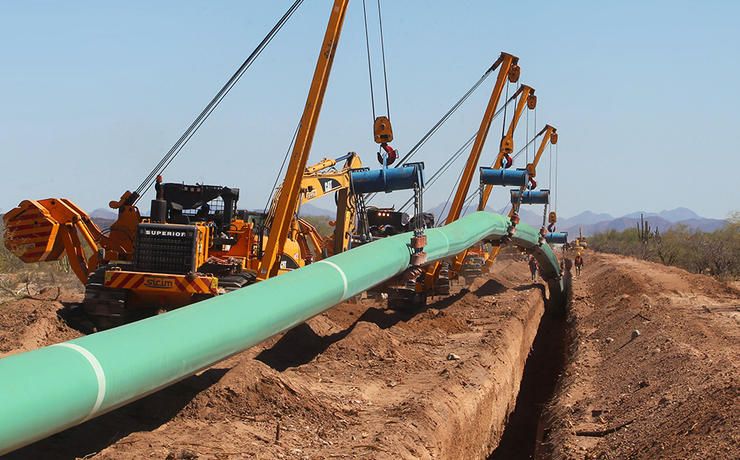Natural gas imports to Mexico increased at a year-over-year rate of 5.1% in 2023, to 5,982 million cubic feet per day (MMcfd).
In 2023, Pemex imported less natural gas than in 2022, totaling 463.4 million cubic feet per day, a reduction of 12.9 percent.
This decrease is mainly due to the increase in natural gas imports by third parties.
On the other hand, Pemex kept its natural gas exports stable at 0.7 million cubic feet per day in both 2023 and 2022.
Natural gas imports to Mexico
Natural gas is used in electricity generation; to provide heating and cooling; in industrial manufacturing; and as a fuel in transportation and homes.
It is also used in the commercial sector and is transported compressed or liquefied as needed.
Here are the most recent Imports of natural gas to Mexico, in MMpcd, according to data from the Ministry of Energy:
- 2018: 4,511
- 2019: 5,060
- 2020: 5,438
- 2021: 5,896
- 2022: 5,694
- 2023: 5,982
Logistics
In January 2020, the Government announced 21 projects to expand hydrocarbon storage at ports.
Twelve will be in the Gulf of Mexico (13 million barrels) and nine in the Pacific (8 million).
So far, 15 projects have been authorized.
Also in 2020, the CFE began construction of the Cuxtal I Gas Pipeline, 14 km long and 36 feet in diameter.
This pipeline will increase supply to the Mayakan pipeline, reducing costs in the Yucatan Peninsula. Between September 2022 and June 2023, it processed approximately 174 million cubic feet per day of natural gas.
In 2023, the second phase, the 700 km Cuxtal II pipeline, was announced, which will increase capacity to 567 million cubic feet per day and will be completed by the end of 2026.
Oil production
According to a March 12, 2024 OPEC report, oil production in Mexico in 2024 is expected to decline by 50,000 barrels per day, averaging 2.1 million barrels per day.
This is due to declines in mature fields, offsetting gains from new projects.

